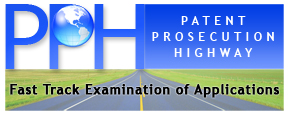On 1st June 2019, the Ministry of Commerce and Industry and the Department of Promotion of Industry and Internal Trade (DPIIT) published a draft of the amended Patent Rules, 2019. The Draft Patent Rules, 2019 proposed amendments to sub-rules 2 and 3 of rule 21 and sub-rule 2 of rule 131. While rule 21 deals with filing of priority documents, rule 131 deals with the submission of statement of working of patents.
A better and secure intellectual property system provides a country to raise standards in a way of economic stability or the social or cultural development, on the other hand, patent defines as a right which is given to the owner/inventor of a good or of a process, which offers a new technical solution to the problem granted to him/her by the patent licensing authority.
A patent provides ownership right which is about 20 years, once the patent is expired it can not be renewed and that patent can be used by the normal public as it will be accessible in the public domain. The patent provides protection towards his/her invention which can not be used for commercially distributing and selling purposes without the patent owner's consent. Rights which have been granted to the patent owner is given by the courts, in any case of wrongfully use, the patent owner can file a case of infringement before the court. Even if the third party claims and proves that the patent has some kind of ambiguity, the court can declare patent as invalid.
Registration of patent is granted at both the levels national or international, at the national level patent is given by the national patent office or by the regional office which carries examination work for a group of countries, example of such offices are European Patent Office (EPO), African intellectual property organization (OAPI). In the regional country system, patent owner requests which of all countries he would like to secure his patent and the country calls whether to provide protection in their territory or not. The WIPO states a new and secure, reliable, and easily accessible system on the international level, administered Patent Cooperation Treaty (PCT) which provides a single international patent application which has the same effect as a national application filed in designated countries.
Patent Prosecution Highway is a pilot program between the Indian Patent Office(IPO) and Japan for the purpose of fast and efficient patent filing on December 5, 2019. PPH allows leverage allowance of claims from one patent office to another office. PPH in India encourages foreign applicants to enter into India with a fast filing system. IPO will accept applications within the fields of electricals, electronics, computer science, Information technology, physics, civil, mechanical, textiles, automobiles, and metallurgy while on the other side JPO will accept applications from all fields of technology.
The guidelines have been published by the controller general of patent, design & trademark (CGPDTM).
The applicant can request an examination by filing with relevant documents before the office of later examination by satisfying all the requirements prescribed by PPH by IPO and JPO which is on the basis of office of earlier examination.
The details which should be considered while filing a PPH are:
- The number of applications accepted by the PPO within a year is restricted to 100 in a year on the first come first serve basis.
- Only one person or jointly with any other applicant can file only 10 PPH to IPO.
- Special status request for expedited examination is required to be filed with online form 5-1 under chapter 5 of PPH guidelines.
- The decision for acceptance/ rejection /defect.to applicant or the authorised agent through email and message on E-filing portal.
- In case of any defect in the form 5-1, the applicant has 30 days to rectify and submit it to IPO.
- The timeline of the examination is prescribed by the patent rules, 2003.










0 Comments